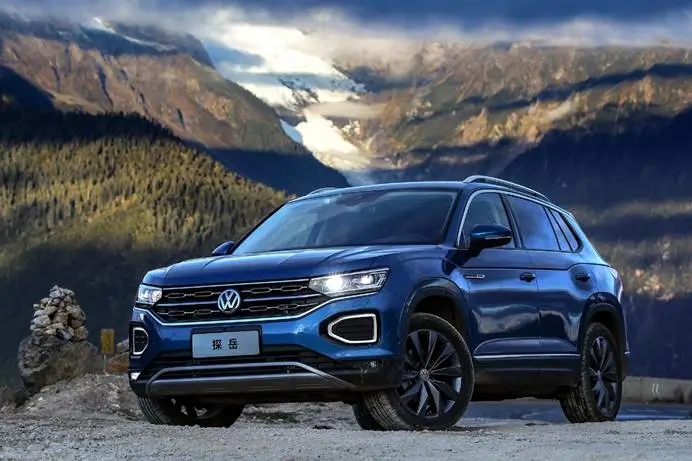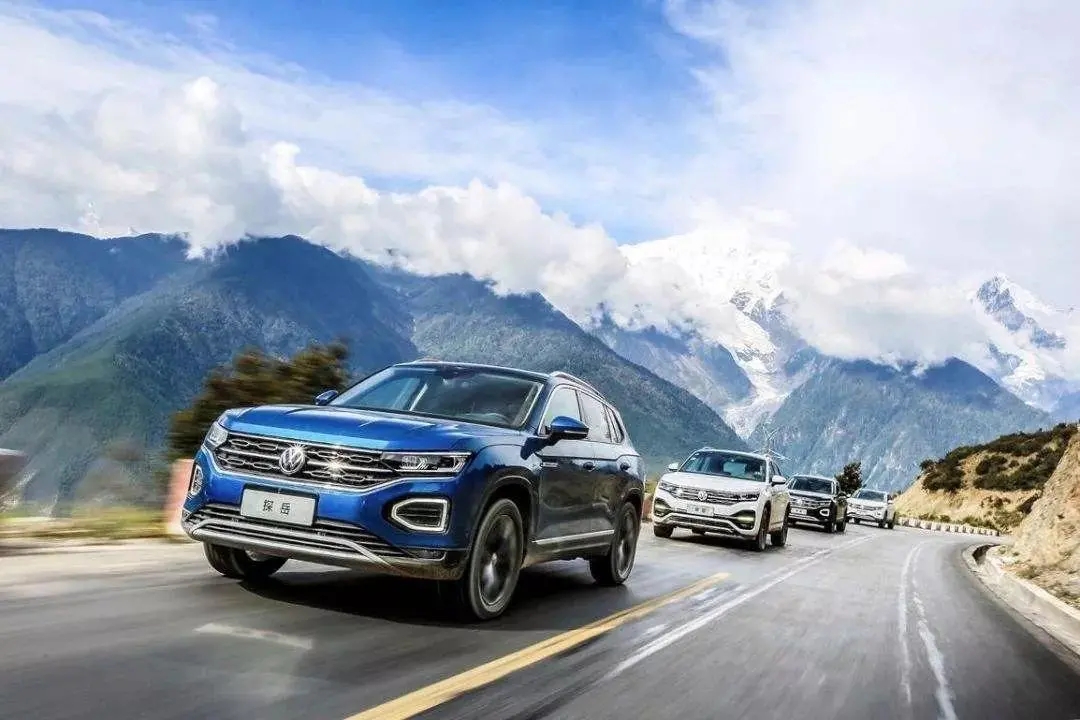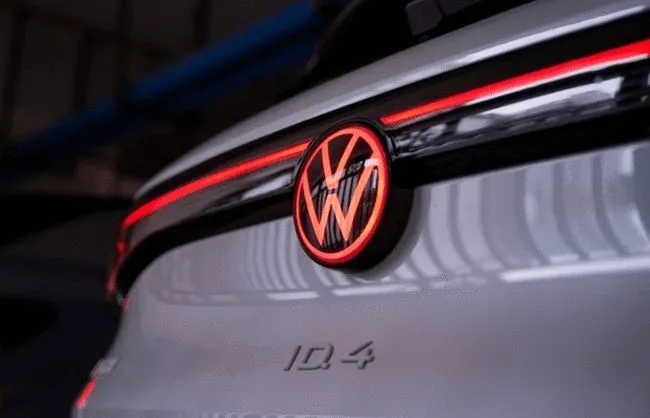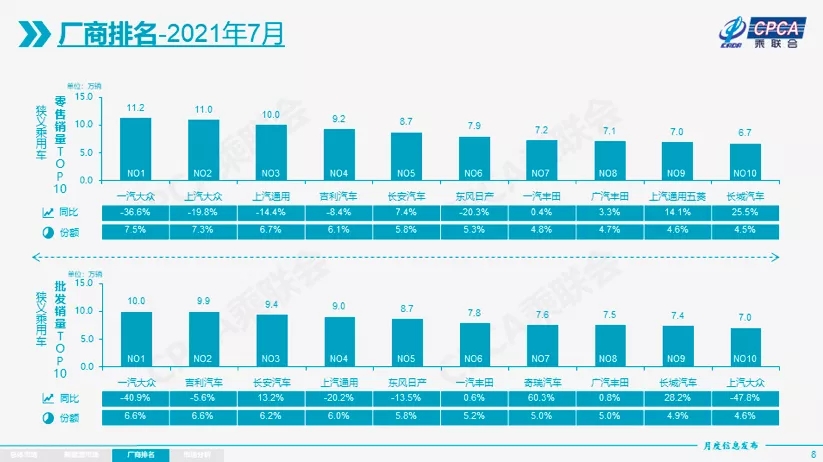Author: Nie Yiyao
Wearing a halo inevitably comes under scrutiny.
Currently, First Automobile Works-Volkswagen, with the halo of the sales champion, is in an awkward position, having also set the record for the largest decline in sales.
Recently, the China Association of Automobile Manufacturers released sales data and rankings for domestic automakers in July. First Automobile Works-Volkswagen ranked first in sales with 112,000 vehicles sold, but also achieved the largest decline in sales among manufacturers with a 36.6% year-on-year decrease.
However, this is not the first time that First Automobile Works-Volkswagen has encountered setbacks. If we look back, since April of this year, the monthly sales of First Automobile Works-Volkswagen have been in a continuous year-on-year decline. Especially in June of this year, sales decreased by 22.0% YoY, and in July, sales decreased by 36.6% YoY.
The declines are becoming more and more severe.
Meanwhile, the market share of First Automobile Works-Volkswagen is also shrinking rapidly. From 12.0% in March of this year, it shrank to 7.5% in July.

In 2019 and 2020, First Automobile Works-Volkswagen won the annual sales crown in the domestic passenger car market. In the first seven months of this year, it has also been the monthly sales champion. However, compared with the sales gap between First Automobile Works-Volkswagen as the monthly sales champion and the second-place automaker in the first six months of this year, the term “narrow victory” is the only way to describe First Automobile Works-Volkswagen’s monthly sales champion in July.
In July, First Automobile Works-Volkswagen sold 112,000 vehicles, only 2,000 more than SAIC Volkswagen’s 110,000 vehicles.
The stable reputation and sales of First Automobile Works-Volkswagen are in strong contrast with the trend of continuous large declines in the past two months. The outside world cannot help but pay attention to and wonder: what is the reason for the sharp drop in sales of First Automobile Works-Volkswagen? What kind of performance will First Automobile Works-Volkswagen have in the future?
Chip Shortage is the Main Reason for Sales Decline
The impact of the chip shortage on the automotive industry was already warned last year. However, against the backdrop of the ongoing global pandemic this year, the impact of the chip shortage on the production capacity and sales of automakers, especially joint venture car companies, seems to be even more severe.For the sales volume of passenger cars in China in July, the China Passenger Car Association believes that the insufficient global chip supply and uncertainty have caused significant production losses for some Chinese car companies. Wholesale sales volume of some car companies decreased sharply in recent months, leading to imbalanced inventory levels, unbalanced order demand and delivery for joint venture car dealerships, and weaker retail sales.
Affected by the shortage of chips, First Automotive Works-Volkswagen (FAW-VW) had news of ESP chip shortages as early as April this year. Based on the production reduction of 20,000 vehicles due to ESP chip shortages in April, FAW-VW will also face shortages of 10 types of chips that affect the production of 29 models.
According to the original plan, FAW-VW should have produced approximately 610,000 vehicles in the second quarter of this year. However, due to chip shortages, the production volume in the second quarter was reduced to 400,000 vehicles, with a proportion of reduced production of 30%.
Based on the actual sales of FAW-VW in the second quarter of this year, which was 466,000 vehicles (159,000 in April, 168,000 in May, and 139,000 in June), the reduced production and sales volume were rather consistent, mainly because the chip shortage resulted in a significant decline in sales.
According to more detailed internal news, the 29 models that FAW-VW had to reduce production included Audi A3, A4L, A6L, Q5L, Volkswagen Passat, Golf, Bora, Sagitar, Tayron, Jetta VS5, VS7, VA5, ID4.CROZZ, and ID6.CROZZ.
FAW-VW’s response strategy is to prioritize the supply of Audi, minimize the impact of chip shortages on the Audi brand, and maximize production to make up for the loss of production volume.
Starting in early April of this year, FAW-VW had already adjusted some of its factories to produce only one shift, reducing or stopping the production of Volkswagen Sagitar, T-ROC, Bora, and Tayron models.The impact of chip shortage on FAW-Volkswagen’s sales is self-evident. However, if we attribute the decline in FAW-Volkswagen’s sales entirely to the chip shortage and ignore or shield other events that are happening, it will only lead to superficial understanding and be of no benefit to the future development of FAW-Volkswagen.
Product quality and service cannot be ignored
Apart from chips, another issue that FAW-Volkswagen has received widespread attention for is the quality complaints from car owners regarding their related products and the dissatisfaction with how they handle problems.
Typical complaints include “FAW-Volkswagen Tanyue’s particle trap blocker causes engine exhaust failure and high oil consumption, and the manufacturer has not responded so far. Dealers suggest driving on the highway more to alleviate the problem,” which can be seen everywhere online.
According to relevant complaint platforms, FAW-Volkswagen Tanyue became the most complained-about model for five consecutive months from March to July this year due to a problem with the particle trap blockage leading to engine exhaust failure and high oil consumption.
Furthermore, the top three car models that have received the most complaints about car quality issues in the past year, as statistics from the relevant complaint platform show, are Tanyue with 2194 cases, Magotan with 1117 cases, and Sagitar with 1078 cases, all of which are under FAW-Volkswagen.

Explaining this phenomenon just by saying “the higher the sales, the more likely there are problems” or by dealing with car owners’ complaints with the attitude of “the higher the sales, the less we care” is clearly an irresponsible excuse and approach that does not match the long-term development positioning of the enterprise.
What car owners need is an attitude that the enterprise faces problems directly and effective solutions. It is also what car owners are waiting for, rather than just telling them to “drink more hot water” or “drive more on highways.”
This year is an important milestone for FAW-Volkswagen, which celebrates its 30th anniversary, as summarized by the company itself: “Over 30 years, FAW-Volkswagen has transformed from a pioneer to a leader and witnessed, as well as driven, the development of the Chinese auto industry.”
 This year is also a challenging year for FAW – Volkswagen, with chip shortages, global pandemic, independent brands launching fierce attacks on joint ventures, new energy vehicles penetrating traditional fuel vehicles, and independent new energy brands completely suppressing joint venture new energy brands. These pressures make user consumption and usage experience particularly important. Excellent user reputation may be a crucial opportunity to win the next 30 years. Once giving the impression of “big store cheating customers”, it may be the beginning of consumers gradually drifting away.
This year is also a challenging year for FAW – Volkswagen, with chip shortages, global pandemic, independent brands launching fierce attacks on joint ventures, new energy vehicles penetrating traditional fuel vehicles, and independent new energy brands completely suppressing joint venture new energy brands. These pressures make user consumption and usage experience particularly important. Excellent user reputation may be a crucial opportunity to win the next 30 years. Once giving the impression of “big store cheating customers”, it may be the beginning of consumers gradually drifting away.
This article is a translation by ChatGPT of a Chinese report from 42HOW. If you have any questions about it, please email bd@42how.com.
